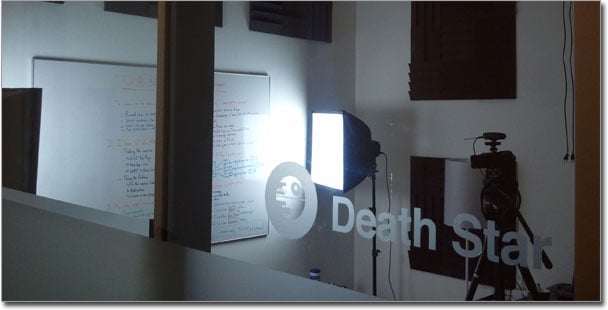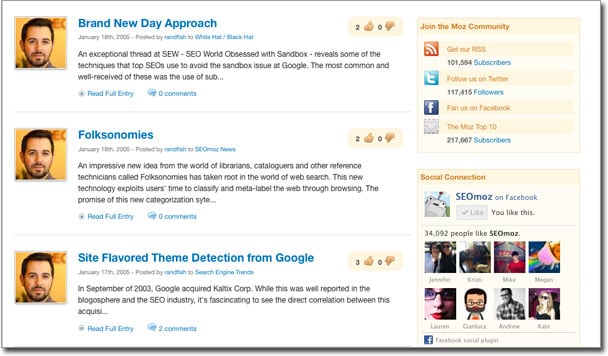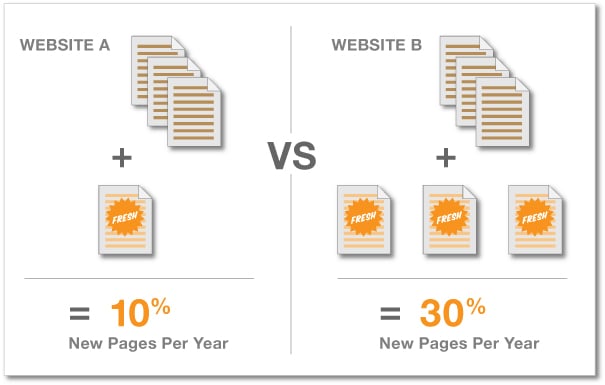
How to Stop Over Optimizing and Start Creating for SEO
Is your website hurting because of over optimization? It's a question every SEO faces at one time or another. Over optimization penalties have been around for awhile, but Matt Cutts recently announced Google will soon crack down harder on sites that take SEO to the extremes. How do you know when you've gone to far? In this week's Whiteboard Friday, we explore what happens when certain SEO techniques stop delivering value, and when you should switch your strategy to more productive activities.
Video Transcription
Howdy, SEOmoz. Welcome to another edition of Whiteboard Friday. My name is Cyrus. I'm an associate here at the world-famous SEOmoz, coming to you from the Death Star Studios. Have you ever seen the Death Star Studios? I'll put a picture in the post below. Not as cool as Rand's personal bat cave, which only five people have ever seen, but it's still pretty cool.
Today I want to talk about over-optimization. I spend a lot of time in the SEOmoz Q&A. I see a lot of people asking questions which indicate that when you're beginning your SEO, you have a tendency to maybe take the optimization a little too far. This is becoming really important today. If you've been doing SEO a while, you've seen over-optimization penalties sort of creep into the algorithm over the past couple of years. Two weeks ago Google announced, through Matt Cutts, he kind of let it slip in a conference that Google was going to start cracking down even harder on overly-optimized sites, sites that use SEO a little too much in an effort to sort of level the playing field. So this is what I want to talk about.
When you're just getting started in SEO, and we've all been there, we've all done this in every one of our - at least once - to any website. You're starting off, and let's say this is your Google Analytics and this is your traffic, and you start learning SEO. You start optimizing the title tags. You fix your 404 errors, and your traffic starts increasing. Then you start getting into more nitty-gritty. You get your canonical tags just right, you decrease your overly long URLs, and after a time, your traffic instead of increasing, it starts to level off. Your ROI, your return on investment for the optimization that you're putting in sort of tends to taper, and you're not getting these dramatic results anymore.

When you're just starting out, I believe there is a huge dividing line between the beginner SEO and the intermediate SEO, and that line is found right here. When you start reaching those diminishing returns on investment, the beginner SEO will just keep pounding away at it. They'll just keep optimizing and optimizing and optimizing, and they get a little bump in their traffic or a little decrease and it fuels them like a slot machine, like they're winning or they're losing. They just keep playing that game without creating any new value to their website. A lot of times you hear from beginner SEOs that, "Oh, you know, I don't want to create new content because it's a small gardening site for my local gardener, and there's not really much content to create, and I can't build links because no one wants to link to my content. So I'm just going to keep playing with the title tags to try to fool the search engines into sending more traffic."
But today with these over-optimization penalties on the way and the fact that these tactics not only are low ROI, but the penalties can make them negative ROI, that by over-optimizing, you're actually going to see a decrease in your traffic. We've seen these for a while, a lot that we are familiar with and a lot that we can guess at.
One of the most common over-optimization techniques that you want to avoid obviously is keyword stuffing. There are a lot of places that you can stuff your keywords that we are familiar with, in the text of the body, in the images, in the navigation links. There are three in particular that we see that Google seems to pay a lot of attention to when done in combination, and that's the title tag, the URL, and inbound anchor text. When all three of those are at harmony with each other on a really over-optimized basis, we tend to see a decrease in rankings. That's just from personal experience, not scientifically based by any means. But in this example, if your title tag exactly matches your URL and you have a huge amount of inbound anchor text, say 80% of your anchor text also matches those two things, you're probably over-optimized. You're probably doing a little too much SEO to that site, and it does not look natural.
The other areas of over-optimization that you want to avoid are your linked profiles. We've particularly seen this in the past few weeks with Google cracking down on linked networks, low quality links. They announced that they are going to be devaluing more administrative links. By administrative links, we mean sites that are related to each other. So if you own a network of 50 sites and you're interlinking all of those to each other, the value that you are getting is over-optimizing. They are going to be diminished, and you could face a penalty. If you do it too much, you could face de-indexing, like we've seen Google do with the linking indexes. Also, going back to the low value links, the directory links, the comment links, you want to balance link profile, because any technique that you take too far is going to be over-optimized. You're going to get diminishing rate of returns.
Now, if you're beginning SEO and you want to advance to the intermediate SEO, right here I urge you to make the other choice. Don't go to the dark side. Don't go the over-optimization route. Go with the light side. Choose new creation. If you're beginning SEO, if you want to make this jump to intermediate SEO, the best thing you can do to get high ROI is start creating content today. Starting today, create a content calendar. If you look back in the archives of this blog, go back to like 2005, 2006, you'll see what Rand did when he was here basically by himself.

Rand Fishkin had a content calendar that was every single day, 2005, 2006. Not all those posts are groundbreaking SEO masterpieces, but that guy wrote every single day, and he built this blog into what it is now. Now you don't have to write every day for your content calendar, but set a schedule and stick to it, whether it be daily, weekly, or monthly. When you do that, you open up all these new areas of SEO that you haven't been exploring when you're over- optimizing.
The first thing you're going to do is create all these new long-tail opportunities. So here your ability to rank is just for the same 10 pages, 100 pages, 1000 pages of your website. You're never creating any new ranking opportunities or new long-tail opportunities. You're not building those for yourself. With the content calendar, you're now an intermediate SEO, you're creating all those new opportunities every day when Google crawls those pages.
You're also creating new freshness. I did a blog post a few months ago about freshness factors. When you add new content to your website, you're giving Google all these freshness signals that say, "My site is still relevant. It still matters. Crawl me more, index more of my pages." And just by having that freshness, you'll see this line increase. That is a high ROI SEO activity. But also when you create new pages, you kind of get a double freshness benefit because you have the opportunity to link back to your old material, your old, stale, 10-page, 100-page website. By creating that new content and linking back to yourself, you're telling Google these pages are still relevant. Yes, they've been on my site for 5 or 10 years and nothing has happened to them, but they are still important. I want you to crawl them. I'm linking to them now. It's not as strong a signal as external links, but it still gives you that opportunity.

Finally, back here you weren't creating any links because you didn't have those link assets. Who wants to link to your sites? This gives you the opportunity to create those link assets, to build the content that people want to link to. If you're coming into an old website, if you're taking it over, they are your client and it's just something that is unattractive, this gives you the opportunity to create something that people actually do want to link to. This will take you from here to here.
That's it for today. Tell me what you think in the comments below. Thanks, everybody.
Video transcription by Speechpad.com
Additional Resources:
The author's views are entirely their own (excluding the unlikely event of hypnosis) and may not always reflect the views of Moz.




Comments
Please keep your comments TAGFEE by following the community etiquette
Comments are closed. Got a burning question? Head to our Q&A section to start a new conversation.